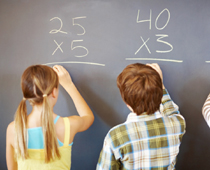
Connectives
This quiz is about connectives. It adds connectives that contradict the first clause such as ‘however’, ‘but’ and ‘yet’. This will aid sentence level work as suggested in the National Curriculum. In addition it will improve KS1 children’s English writing, speech and literacy.
When we write, we can join two short sentences together using a connective. Some connectives add information to the first sentence whilst others will disagree. An example is: ‘I like chocolate’ – now I add: ‘but too much is bad for me.’ The word ‘but’ is connecting the two sentences/clauses together and the second sentence disagrees with what I’m doing.
To see a larger image, click on the picture.
Ready for more?
not all...
quizzers. Try to win a coveted spot on our Hall of Fame Page.

















